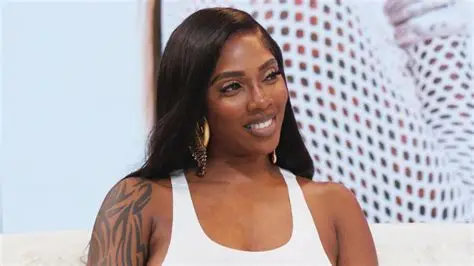Nigerian music star Tiwa Savage has ignited heated conversations within the Afrobeats community after openly challenging the long-standing “Big 3” narrative that places Wizkid, Burna Boy, and Davido at the pinnacle of the genre.
During her recent concert in London, the singer, often celebrated as the “Queen of Afrobeats,” expressed frustration with the label, which she suggested carries undertones of misogyny. Midway into her electrifying performance, Savage dropped what has now become one of the most talked-about lines of the night:
“I don’t want to say a lot of things because I will be trending by tomorrow. F**k the Top 3,” she declared, drawing loud cheers from sections of the audience.
For years, Afrobeats enthusiasts, critics, and fans alike have loosely used the term “Big 3” to describe Wizkid, Davido, and Burna Boy, three male superstars whose global dominance has helped elevate the genre to new heights.
However, the recurring exclusion of female artists from such conversations has fueled debates about gender bias in the industry.
Tiwa Savage, who has been instrumental in shaping the Afrobeats sound and exporting it internationally, appeared to push back against this status quo.
Read Also: Tiwa Savage denies trolling Wizkid amid fan speculations
By rejecting the ranking outright, she not only sparked discourse about her place in Afrobeats history but also spotlighted the broader issue of women’s visibility in a genre often dominated by men.
Industry watchers note that while Savage has earned her place among the genre’s global trailblazers, with hit songs, international collaborations, and sold-out shows, she is rarely included in conversations about the “greatest” in Afrobeats.
Her statement in London may have been fueled by this apparent double standard.
Often described as a pioneer for female artists in Afrobeats, Tiwa Savage has consistently broken barriers. From her early days writing for American stars to her return to Nigeria, where she carved out a lane in a male-dominated industry, she has played a critical role in the global expansion of Afrobeats.
Despite this, she continues to be excluded from the “Big 3” conversation. Some fans argue that her contributions, longevity, and global recognition warrant a place at the top table.
Others, however, maintain that the “Big 3” tag is not about gender but about dominance in terms of streaming numbers, tours, and commercial success.
Read Also: Ayra Starr crowns Wizkid ‘king of afrobeats’ amid big 3 debate
Amid the bold statement that grabbed headlines, Savage also gave fans a heartwarming moment when she brought her son, Jamil, on stage for the very first time. The touching scene was in contrast to her fiery comments, showcasing another side of the superstar.
The move was especially notable because Savage had previously said in interviews that she would not want her son to pursue a music career, citing the challenges and scrutiny artists face in the industry.
Still, the London crowd warmly received the mother-son moment, adding a memorable highlight to the concert.
Whether viewed as a bold feminist statement or a controversial outburst, Tiwa Savage’s rejection of the “Top 3” ranking has opened fresh debates about inclusivity in Afrobeats.
It underscores a lingering question: should the narrative evolve to reflect not just three male names but the many artists, male and female, who have shaped the sound into a global phenomenon?
One thing is clear: Tiwa Savage has once again asserted herself as more than just an artist but also a cultural figure unafraid to challenge norms. With her voice ringing loud from London to Lagos, the conversation about Afrobeats’ hierarchy may never be the same again.



